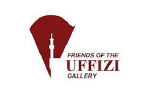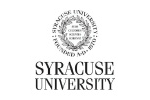



ONLINE HISTORY COURSE
“Italian City-States at the Time of Dante”
LIVE HISTORY COURSE with Dr. Fabrizio Ricciardelli
Dates: April 29 and May 6 & 13, 2024
Schedule: Mondays
Time: 2:00 – 3:15pm ET | 11:00am – 12:15pm PT |
7:00 – 8:15pm London
Contact Hours: 3 Hours 45 Minutes
Credits: Certificate of Completion
ONLINE HISTORY COURSE
“Italian City-States at the Time of Dante”
Course Description:
Most of Europe around 1300 was governed by kings assisted by a restricted ruling class of ecclesiastics and nobles. These were the men who controlled cities and towns, rather than the traders and artisans who lived and did business in them. Italy and southern France were different. In particular Italian cities, especially in Lombardy and Tuscany, created a political system in which the majority of population had its political responsibility. The city offered protection and guaranteed the rights of its citizens. In every Italian city were considered citizens those who were part on the one hand of the wealthy families (the ruling class), on the other hand those who were part of the middle-class (bourgeois).
Virtual Classroom: Full access to an online educational platform with videos of recordings, syllabus and readings.
Location: LIVE INTERACTIVE ON-LINE ART HISTORY LECTURES
Optional Readings:
Information will be provided upon registration.
Complete syllabus will be provided upon registration.
LECTURE 1 - The Commune of the Popolo
-Monday, April 29
The contrast between the class of the aristocrats or knights distinguished by a military lifestyle and wealth based in land, and the class of the rich craftsmen and merchants, produced a chronic instability in the city institutions. The nobility, derived from feudal aristocracy, lost its authority in municipal politics during the mid-thirteenth century to the emerging bourgeois class of cloth merchants and bankers, the officers of the well-organized arti maggiori (upper guilds). Inside the popolo of the guilds there were wealthy judges, rich notaries, moneychangers, doctors as well as spice merchants, wool and silk workers, blacksmiths or bakers.

LECTURE 2 - Magnates and Popolani
-Monday, May 6
Many popular communes adopted prescriptive or proscriptive measures that targeted those they designated as ‘magnates’, families officially identified by the presence of members with titles of knighthood or by their reputation for lawlessness and violence. These criteria, especially the latter, were flexible enough to encompass the older noble families and the newly rich who emulated their lifestyle.

LECTURE 3 - The Good and Bad Government
-Monday, May 13
In the meeting chamber of the Nove, the Sala della Pace in the Palazzo Pubblico, in Siena, is one of the great documents of the political ideology of a medieval city-state, part inscription and part painting, known as the cycle of Good and Bad Government. The frescoes were painted between 1338-40 by Ambrogio Lorenzetti, who was evidently a member of the group of the ruling class and known, aside from his skill as an artist, for his wide knowledge of political theory.

Fabrizio Ricciardelli earned his undergraduate degree in Medieval History at the University of Florence (Italy) and his Ph.D. at the University of Warwick (England). Since 2004 hew was professor of "Renaissance History” at Georgetown University. Between 2010-2012 he was Academic Director of the Georgetown University program in Florence. In 2010 he became Chairman of the scientific committee "Villa Le Balze Studies”. In 2012 he was appointed Director of the Kent State University program in Florence. His academic experience includes journal articles, conference presentations, and several reviews. He has authored and co-authored numerous books on institutional and political history. His main field of study is Italian city-states in the social, economic, political, and cultural landscape of Medieval Europe. Ricciardelli has recently embarked upon the study of the relationship between emotions and passions as forms of political persuasion in Renaissance Italy. His latest publication are A Short History of Florence(2019) and The Medici. The Power of a Dynasty(2021).














